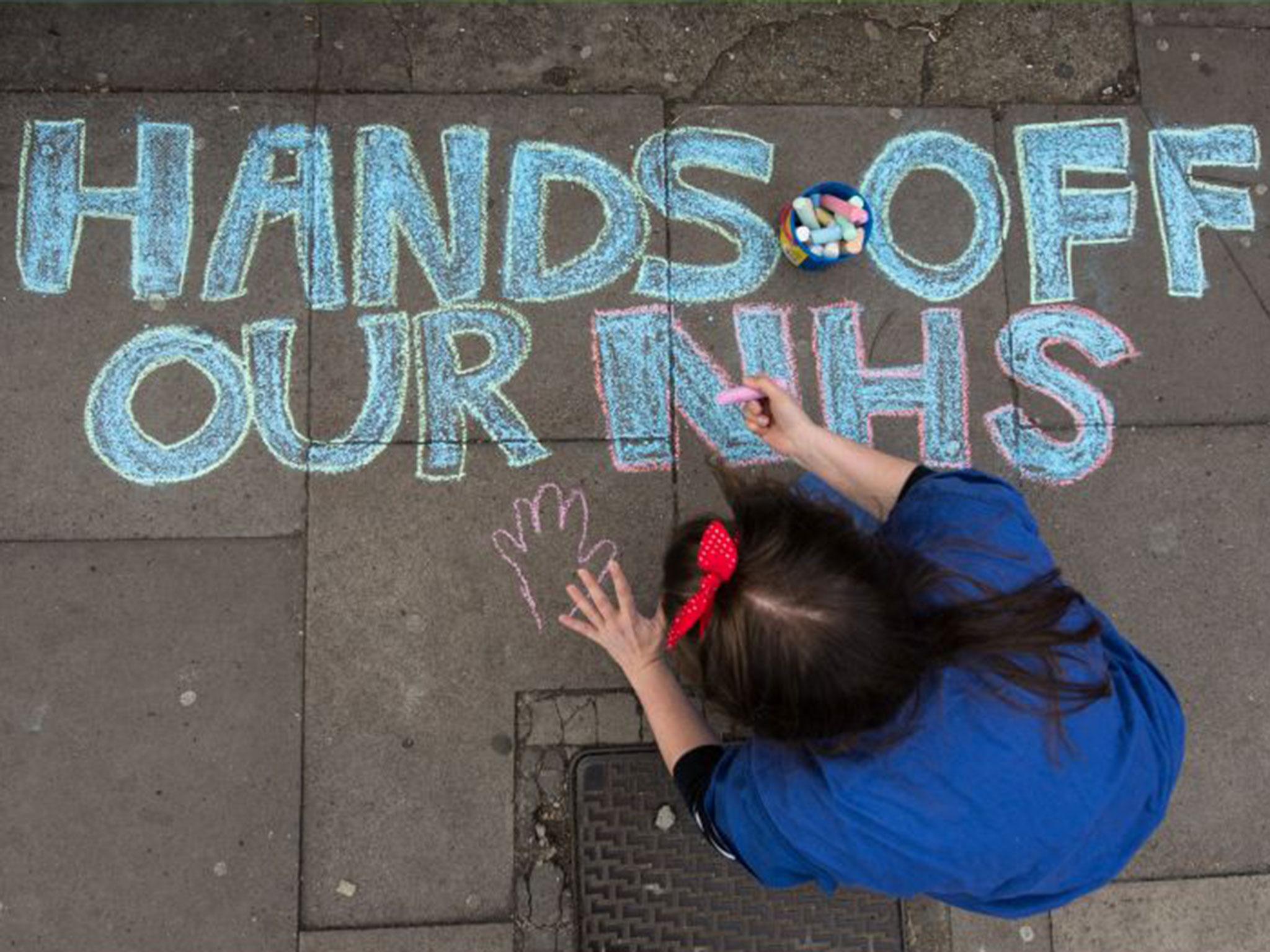British people are no longer willing to pay for a better NHS. The moment of truth for our beloved health service has arrived
The principle of a free service was broken in 1951, by the Government of the Sainted Attlee, when it decided to charge for prescriptions, dental work and spectacles


Your support helps us to tell the story
From reproductive rights to climate change to Big Tech, The Independent is on the ground when the story is developing. Whether it's investigating the financials of Elon Musk's pro-Trump PAC or producing our latest documentary, 'The A Word', which shines a light on the American women fighting for reproductive rights, we know how important it is to parse out the facts from the messaging.
At such a critical moment in US history, we need reporters on the ground. Your donation allows us to keep sending journalists to speak to both sides of the story.
The Independent is trusted by Americans across the entire political spectrum. And unlike many other quality news outlets, we choose not to lock Americans out of our reporting and analysis with paywalls. We believe quality journalism should be available to everyone, paid for by those who can afford it.
Your support makes all the difference.“Don’t tax you, don’t tax me, tax that man behind the tree.” The old ditty sums up this morning’s poll by Ipsos MORI for the BBC over who should pay for more funding for the NHS. The answers in short were: not me; stupid people; someone else; and foreigners.
In more detail, the findings were as follows. Charging for some health services is “unacceptable” by a margin of 51 per cent to 37 per cent; charging patients with illnesses caused by their lifestyle splits people 45 to 44 per cent; increasing income tax is seen as “unacceptable” by a margin of 50 to 40 per cent; and higher charges for visitors from outside the UK are “acceptable” to 74 per cent and “unacceptable” to only 18 per cent.
These are depressing figures – not just for the implied xenophobia of question four, but because they expose the difficulty of solving the NHS funding crisis in a democracy.

The NHS may be the national religion. We may think, contrary to most of the available evidence, that it is the best healthcare system in the world. But pay more for it? Him. Over there. Behind that tree.
It has been possible to mobilise public support for higher NHS spending in good economic times and when the country has a Labour government. Spending rose significantly between 1999 and 2010, but since then it has failed to keep up with rising demand. The spending plans for next year are for NHS spending to fall in real terms per person, as Simon Stevens, the chief executive of NHS England, said and ministers confirmed last month.
That probably won’t happen. The medical metaphors will be out in force when the press reports a small additional increase in NHS funding in the Budget next month: a sticking plaster, a strip of bandage, a temporary stitch. But that is how NHS funding works: politicians with books to balance and ring fences around school spending, aid, defence and whatever other crisis hits the headlines next, give the health service just enough money to stave off collapse. Except for those rare times such as 1999-2010. For all Jeremy Hunt’s commitment to the NHS, and for all his political skill – he has survived, after all – now is not one of those rare times. Despite Theresa May’s commitment to “ordinary working-class people” who need the NHS most, she has Brexit to deal with and its £100m-a-week dividend for the NHS is unlikely to materialise.
And even if it did, it wouldn’t solve the underlying problem: the British people are not willing to pay for a better NHS.
Once you have spent the windfall from the magic money tree of not paying Brussels, what then? The NHS will need more money. And we don’t want to pay higher taxes, or more NHS charges.
It could be significant that the willingness (or, in more cases, unwillingness) to pay more in charges is not very different from that to pay more in tax. Could this mean the end of the principle of healthcare free at the point of need? Well, that principle was broken in 1951, by the Government of the sainted Attlee which was responsible for creating the NHS in the first place, when it decided to charge for prescriptions, teeth and spectacles (although the charges were actually imposed by the Conservatives in 1952). So when people are asked by a pollster about more charges for “some” health services it is not as if a heresy is being committed against the NHS religion. But the poll does show the problem. A few extra or higher charges would not raise much. Charging foreigners for “health tourism” raises trivial sums; higher charges would raise a fraction of a trivial sum.
There are only two long-term options. One is sustained political leadership of the kind shown by Tony Blair and Gordon Brown – and a fat lot of thanks they got for it, being howled at for “privatising” the NHS by people who have no idea what they mean by the word. That’s one reason why it is the “sustained” bit that is hard in a democracy.
The other option would be to move to a system of social insurance, different versions of which are regarded as normal and egalitarian in all of the rest of Europe. But that really would be “privatisation” and is therefore contrary to the national religion.
As waiting lists lengthen and the social care crisis backs up the NHS conveyor belt, something will have to give. A moment of truth is approaching.
Join our commenting forum
Join thought-provoking conversations, follow other Independent readers and see their replies
Comments